
Speakers 2025
Robert Schoevers - Professor, Psychiatrist and researcher, University Medical Center Groningen

Psychiatrist and researcher, currently head of Dept. of Psychiatry UMCG and Director of interdisciplinary BCN Research School at the RijksUniversiteit Groningen. Active in oral esketamine and psilocybin studies for patients with treatment resistant depression. Interested in both the clinical potential and mechanisms of action of psychedelic substances in mental disorder, surrounded by a rapidly growing group of enthusiastic, hard working and motivated junior and senior researchers. Skeptical about hypes, and at the same time curious about innovation.
Joost Breeksema - Philosopher and PostDoc, director OPEN Foundation

Philosopher and qualitative researcher interested in the lived experiences and perspectives of patients and therapists involved in psychedelic treatments, aiming to deepen our understanding of the potential therapeutic mechanisms involved and the role of non-pharmacological contextual factors. Director of OPEN Foundation and the Interdisciplinary Conference on Psychedelic Research (ICPR 2024; icpr-conference.com; 6-8 June 2024). Underlying all his work is a deep-seated belief in the scientifically grounded, responsible and ethical integration of psychedelics into health care and society that respects the multiplicity of other, non-medical approaches.
Rick Doblin
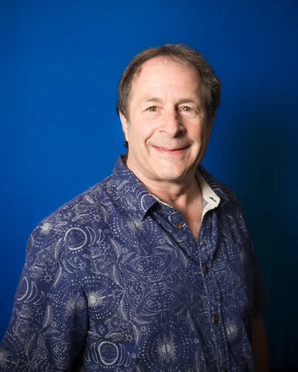
Rick Doblin, PhD, is the Founder and President of the Multidisciplinary Association for Psychedelic Studies (MAPS). He received his doctorate in Public Policy from Harvard’s Kennedy School of Government, where he wrote his dissertation on the regulation of the medical uses of psychedelics and marijuana and his Master’s thesis on a survey of oncologists about smoked marijuana vs. the oral THC pill in nausea control for cancer patients. His undergraduate thesis at New College of Florida was a 25-year follow-up to the classic Good Friday Experiment, which evaluated the potential of psychedelic drugs to catalyze religious experiences. He also conducted a thirty-four-year follow-up study to Timothy Leary’s Concord Prison Experiment. Rick studied with Dr. Stanislav Grof and was among the first to be certified as a Holotropic Breathwork practitioner. His professional goal is to help develop legal contexts for the beneficial uses of psychedelics and marijuana, primarily as prescription medicines but also for personal growth for otherwise healthy people, and eventually to become a legally licensed psychedelic therapist. He founded MAPS in 1986, and currently resides in Boston with his wife and puppy, with three empty rooms from his children who have all graduated college and begun their life journeys. Learn more about Rick by listening to his Origin Story and watching his TED Talk.
Michiel van Elk - Associate professor, author, University of Leiden
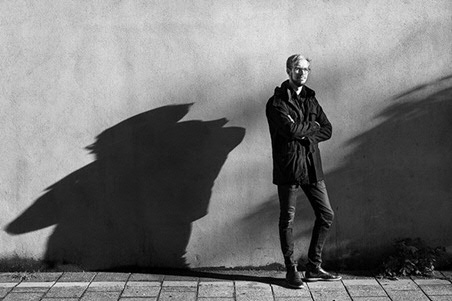
Michiel obtained degrees in philosophy (MA), biological psychology (MSc) and the psychology of religion (MSc) in Utrecht, Amsterdam and Nijmegen. He completed his PhD in Cognitive Neuroscience at the Donders Institute in Nijmegen (cum laude). He worked as a visiting researcher at the University of California Santa Barbara (2010), as a Marie Curie post-dotoral fellow at the École Polytechnique Fédérale de Lausanne in Switzerland (2010-2012), as a Fulbright Scholar at Stanford University (2017), as a Research Fellow at the Netherlands Institute for Advanced Studies (NIAS) in Amsterdam (2019-2010) and as a researcher at the University of Amsterdam (2013-2020). Since 2020 Michiel is affiliated as Associate Professor to the University of Leiden and supported by prestigious grants from the John Templeton Foundation, NWO and the BIAL Foundation he supervises the Psychedelic, Religious, Self-transcendent and Mystical Experiences (PRSM) Lab (www.prsmlab.com). He has published more than 100 peer-reviewed papers in prestigious peer-reviewed scientific journals, including Nature Human Behavior, Cortex, Scientific Reports and Neuroscience and Biobehavioral Reviews. Michiel has also published several popular science books on such different topics as the Babybrain, the Evolution of Religion, Ecstatic Experiences and Psychedelics. Michiel has a deep interest in altered states of consciousness (ASCs), as induced through meditation, sensory deprivation, psychedelics and other means. By using a variety of different techniques, including self-report measures, interviews, expectancy manipulations, neuroimaging tools, psychophysiological techniques and pharmacological challenges he aims to understand how ASCs come about, the effects they have on our behavior and well-being and the philosophical implications of ASCs for our views on the self and reality.
Jeanine Kamphuis - Psychiatrist at the Department for Mood Disorders in the University Hospital Groningen

I work at the Department for Mood Disorders at the University Psychiatry Hospital of the UMCG. We treat severely depressed patients with high disease burden who have often tried multiple treatments without enough result. Together with my colleagues, I seek ways to help these patients. We are often trying the last steps in our treatment guidelines, such as the use of electroconvulsive therapy or monoamine oxidase inhibitors. Given the great need for new treatment modalities I feel an urge to investigate and properly implement new approaches. One of these approaches is ketamine, and I coordinate the ketamine treatment program that we started in 2017. My current research focus is on the use of mind-altering drugs, such as ketamine and classic psychedelics, for treatment-resistant psychiatric disorders especially depression.
Morten Lietz - PhD Candidate, University of Fribourg

Morten Lietz is currently pursuing his Ph.D. in Medical Science, focusing on the effects of LSD on neuroplasticity across the lifespan in a large clinical trial. Further, he serves as educational program coordinator for the NGO “Awareness Lectures on Psychedelics in Switzerland (ALPS foundation)”, which organizes an annual conference and a summer school.
Before coming to Switzerland, he played a key role in initiating a research program at the University of Groningen (NL), which investigated the combination of neuroplasticity-enhancing agents and neuromodulatory treatments for improved cognitive outcomes, supervised by Prof. Enriquez-Geppert. Additionally, he co-organized the first two editions of the Summer School on Psychedelic Research in Groningen with Dr. Joost Breeksema and OPEN Foundation (NL).
Next to his thesis project, his research interests are on the effects of psychedelics on
autobiographical and associative memory, how (epi)genetics influence the psychedelic experience, and the effects of psychedelics on cognition, as well as their safety profile.
Aidan Lyon - Philosopher, University of Amsterdam and Munich Center for Mathematical Philosophy

Aidan Lyon is a philosopher at Leiden University and external member of the Munich Center for Mathematical Philosophy. He completed his Ph.D. in Philosophy in 2009 at the Australian National University and has Bachelor's degrees in Science (Mathematics) and Arts (Philosophy) from the University of Queensland. His research is at the intersection of psychology and philosophy and focuses on wisdom, uncertainty, psychedelics, meditation, yoga, and artificial intelligence. His book, Psychedelic Experience: Revealing the Mind, published with Oxford University Press, explores the intersection of psychedelics, meditation, and other spiritual practices. Dr. Lyon also works as a philosophical risk-management consultant, specialising in decision contexts that involve extreme uncertainty and high stakes. He works with clients across a wide array of domains, including biosecurity intelligence, geopolitical forecasting, environmental decision-making, institutional investing, and psychedelic therapy.
Daan F. Oostveen - Philosopher, Assistant Professor - Utrecht University

Daan F. Oostveen is an Assistant Professor in Philosophy of Religion at the University of Humanistic Studies in the Netherlands. They are editor-in-chief of the academic journal Future Humanities. They had research fellowships at Renmin University of China in Beijing and National Taiwan University in Taipei. Their research interests include critical religion, comparative philosophy, psychedelic humanities, and posthumanism. Their commitment to fostering critical thinking and dialogue within academia reflects their dedication to advancing understanding in complex cultural contexts.
Stephen Snelders - Assistant professor, Historian, Researcher, Utrecht University

Stephen Snelders studied history at Utrecht University. After receiving his M.A. in social and economic history, in the 1990s Stephen developed and worked on a PhD project on the history of LSD in the Netherlands. One of the sources of this project were interviews with pioneers of psychedelic therapy and culture. Stephen also worked as editor of a bulletin on psychedelic drugs. In 1999 he received his PhD at VU-University on the thesis ‘LSD and psychiatry in the Netherlands’. A shortened trade version, ‘LSD-therapie in Nederland’, was published in 2000.
Since then, Stephen has researched and published extensively on the history of psychoactive drugs, focusing on interactions between scientific and public domains, and more particular in the social and cultural sphere. He has worked as research fellow and teacher at the VU-Medical Center (Medical Humanities), Utrecht Medical Center (Julius Center), and is since 2015 research fellow and assistant professor at the Faculty of Science of Utrecht University (Freudenthal Institute/History and Philosophy of Science). Recent publications are ‘Drug Smuggler Nation: Narcotics and the Netherlands, 1920-1995’ (Manchester University Press 2021, 2023), ‘Drugssmokkelland’ (Walburg Pers, 2022), and ‘From psychiatric clinics to magical center: LSD in the Netherlands’, in the volume ‘Expanding Mindscapes: A Global History of Psychedelics’ (MIT Press, 2023).
Helena Aicher
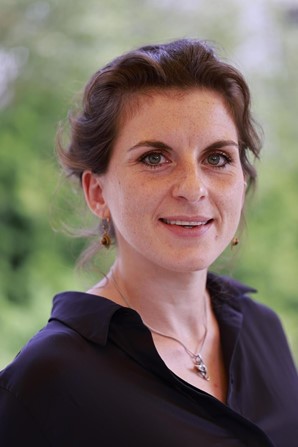
Helena is a postdoctoral researcher at the Universities of Zürich and Basel (Switzerland) involved in trials investigating psychedelics. She also works as a psychotherapist including the limited medical use of psychedelics in different settings, mostly in groups. Helena bridges science and practice, contributing to the development and implementation of psychedelic-assisted therapy. She is also an active member and therapist trainer of the Swiss Medical Association for Psychedelic Therapy (SÄPT).
Johannes Reckweg
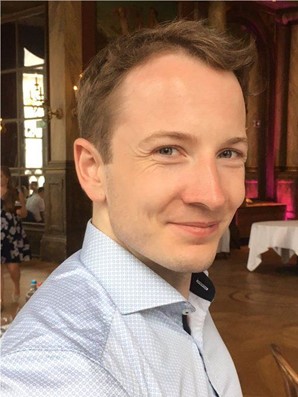
Dr. Johannes Reckweg is a postdoctoral researcher in the Section of Psychopharmacology within the Faculty of Psychology and Neuroscience at Maastricht University. He earned his Bachelor's degree from the Rijksuniversiteit Groningen and completed a Master's in Neuropsychology at Maastricht University. In 2019, he commenced his PhD research, focusing on the cognitive mechanisms and therapeutic potential of psychedelics, particularly the clinical application of 5-MeO-DMT in patients with treatment-resistant depression. During his postdoctoral research, he continues investigating the potential therapeutic applications of psychedelics, as well as the safety and pharmacokinetics of other psychoactive compounds.
Stefanie Enriquez-Geppert – Assistant Professor at the Department for Clinical and Developmental Neuropsychology, University of Groningen

Stefanie Enriquez-Geppert is a psychologist, with a PhD from the Otto Creutzfeldt Center for Cognitive and Behavioural Neuroscience (University of Münster, Germany) focusing on the interplay between brain activity, structure, and cognitive behaviour. In her postdoctoral phase, Stefanie developed neuroscience-based neurofeedback protocols at the University of Oldenburg and the University Psychiatry, studied cognitive ageing in Spain, and researched brain lesion impacts at the University of Cambridge.
Currently, at the University of Groningen, her research is dedicated to applying cognitive interventions to alleviate executive dysfunctions across various populations. Stefanie has led the first study integrating psychedelics with neurofeedback to improve executive functioning, and is exploring the cognitive effects of psilocybin and the acceptability of psychedelic-assisted training. At the board of the Society of Applied Neurosciences, she supports emerging young scientists. Stefanie volunteers as a scientific advisor for the 'International Justice Mission' in Germany, an international non-governmental organisation for human rights.
Stephan Tap
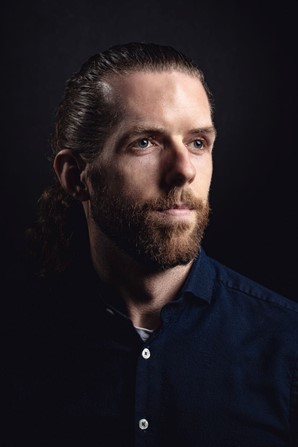
Stephan Tap is a PhD student at the University Center of Psychiatry within the University Medical Centre of Groningen. He is the Clinical Trial Manager of PsyPal, a multi-site randomized clinical trial investigating the safety and efficacy of psilocybin for treating psychological distress in palliative care patients. Stephan has a background in clinical neuropsychology (MSc) and applied psychology (BSc) with a particular interest in the various therapeutic working mechanisms of classic psychedelics from both a neurobiological and psychological perspective.
Rutger Boesjes
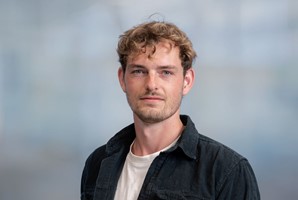
I have a bachelor in Behaviour- and Neurobiology and a Master in Behavioural and Cognitive Neuroscience, both from the RUG. After completing my masters degree in 2022, I worked as a clinical trial coordinator in the UMCG Psychedelic Treatment & Mechanisms research group (and attended the first edition of the Summer School!) Since 2023, I've started my PhD in this same research group.
Sara Massetti
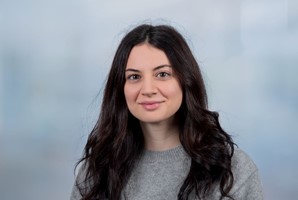
Sara is a PhD student in the Psychedelic Therapy & Mechanisms group, with a background in Biotechnology and Molecular and Clinical Neuroscience. Her research focuses on blood-based biomarkers of the antidepressant response to ketamine and psilocybin. By studying the molecular underpinnings of these treatments with a translational approach, she aims to contribute to the advancement of personalized medicine in psychiatric care.
Eline Haijen

Eline C.H.M. Haijen is a postdoctoral researcher in the Psychopharmacology in Maastricht research group, within the Department of Neuropsychology and Psychopharmacology at Maastricht University. Her PhD research focused on alternative treatments for adults with ADHD, including the potential of psychedelic microdosing. In her current postdoctoral role, she continues this line of investigation, exploring innovative treatment approaches for adult ADHD. Her broader research interests include the effects of psychedelics on sleep, as well as the impact of accessible lifestyle interventions—such as diet, physical activity, and exposure to nature—on mental health.
Metten Sommers
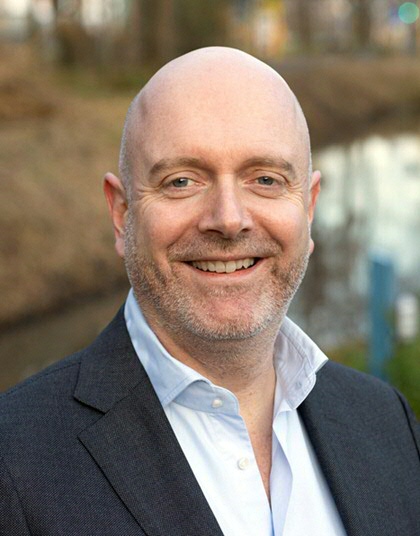
Metten Somers is a psychiatrist and Medical Director of the Mood and Psychosis Unit of the Department of Psychiatry at the UMC Utrecht. He was involved in the OPTiMiSE trial as project manager and obtained his PhD on the relationship between language lateralization and left-handedness using psychiatric genetic and neuroimaging techniques. He holds an executive MBA degree from the Rotterdam School of Management, Erasmus University. His clinical and research work focuses on treatment resistant mood and psychotic disorders. His interest in psychedelics in psychiatry resulted in his involvement as site-PI in the trial ‘Psilocybin in Treatment Resistant Depression’, the first international large scale multicenter randomized clinical trial investigating the effectiveness and safety of psilocybin in depression. He is currently involved in several psychedelic related research initiatives, including the follow-up phase III trial on psilocybin in treatment resistant depression and establishing a Dutch psychedelics research consortium. He is co-founder and coordinator of the Psychedelics in Psychiatry Platform of the Dutch Psychiatric Association.
Juliana Lima Constantino
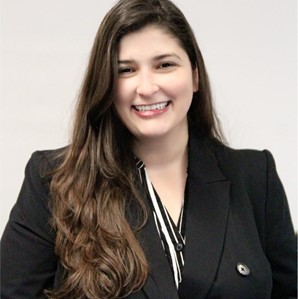
Juliana is a medical doctor and epidemiologist in training, currently pursuing her PhD at the University Center of Psychiatry, University Medical Center Groningen (UMCG). Her thesis focuses on improving the positioning of novel pharmacological agents for treatment-resistant depression by investigating patient characteristics and treatment practices using real-world data, as well as identifying clinical and neurobiological predictors and targets of treatment response. She aims to bridge the fields of epidemiology and psychiatry to enhance psychiatric care and help deliver the right treatment to the right patient at an early enough stage.
